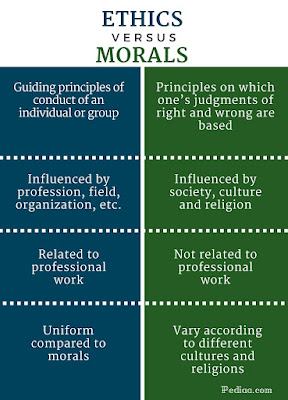Mallory Jones
mj710116@ohio.edu
The approach to philosophy in regard to journalism has historically been didactic; However, as outlined in Moral Reasoning For Journalists by Steven Knowlton and Bill Reader, the morality of journalism is often gray in terms of moral relativity. It is also important to note that Ethics asks not, "What is "good"?" but, "What is the best way to act?".
For example, on the topic of political bias; It is often believed that journalists have the utmost responsibility of earnest fact-reporting when it comes to their work. After all, if the masses consume a journalist's media it would make sense that we would prefer it to be free of any ulterior motive or undertone.
Yet as many of us are aware, we live in a deeply political world where political opinions and moral philosophies become seemingly inseparable. One example of this is modern-day protests against police brutality where the words "protest" and "riot" become politically charged choice-words -- one indicating peace and the other, chaos. This is where ethics comes into play as many journalists and scholars alike believe that an absolutely ethical choice lies within one side of the political fence, so to say.
This concept of what is "morally just" in regard to the press and media has been discussed many times over the past few centuries and it is not without generations of debate that the worlds of philosophy and journalism have coined the term "Freedom of the Press" which essentially means that the press and its journalists should have complete freedom over their writing.
This notion agrees heavily with the idea of "ethical egoism" as it argues that each individual is to do whatever actions which produce the best result for oneself. While this is a popularly shared value, especially in American society, it is my belief that it is only a small fragment of how the subject of ethics forces us to question our own decisions.
Another example of this is Utilitarianism, a popular and relatively new philosophical mode of thought which insists that we do whatever actions are necessary to achieve the desired outcome (when acting in consideration of all of whom are involved). While it certainly rings true with many of our modern ideals concerning democracy, the concept becomes morally gray as our author outlined how this same reasoning could be used to justify seemingly heinous acts.
In Hobbes' "Social Contract Theory", he describes a state of society before laws, norms, or rules of society where each individual acted with total autonomy and free of the social construct of authority. He argued that during this time humanity acted out of self-interest through mutualization.
In other words, Hobbes claims humanity has made the realization that acting in consideration of others would create the best outcomes for oneself because in a harsh, prehistoric environment hostility towards others usually resulted in a shorter life.
The subject of ethics asks us to consider "What is good?" and "Does it (the "good") truly exist as we believe? While the subject of journalism may seem trivial to some when discussing these abstract philosophies, I would implore any skeptic to consider the sheer potential of influence that our media has on society at large.

No comments:
Post a Comment